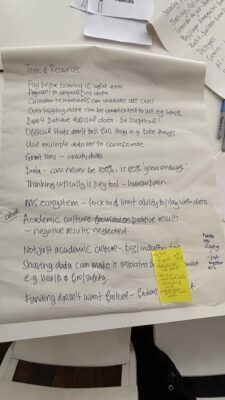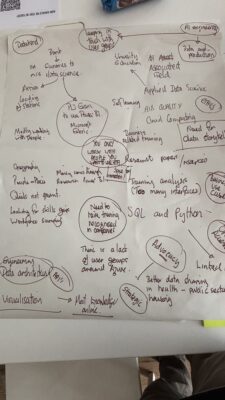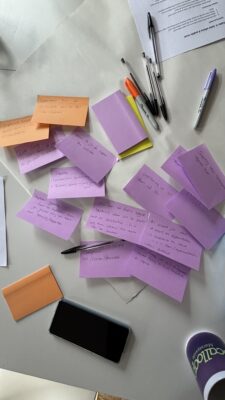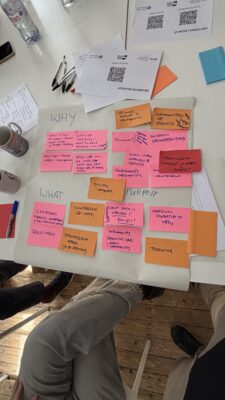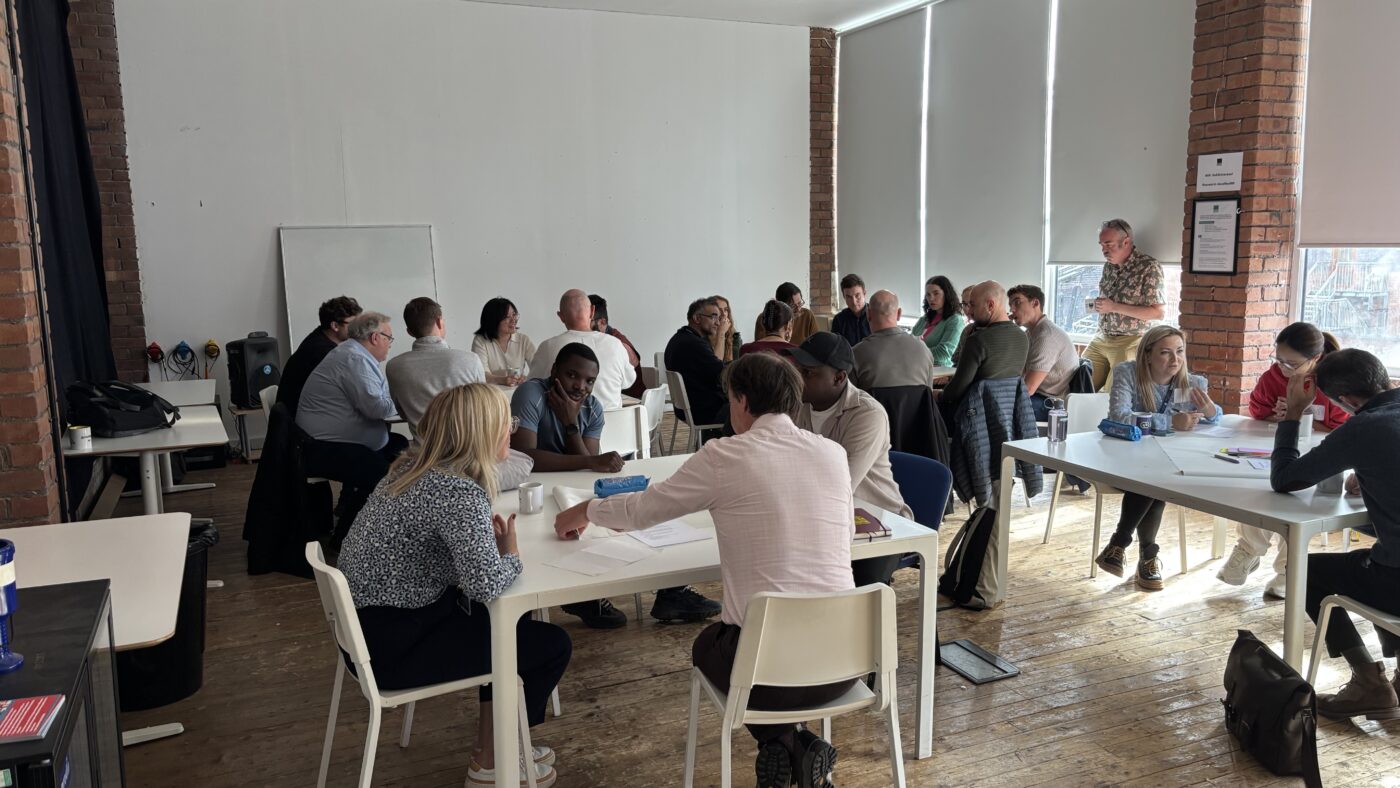The LCR Data Community held its fourth gathering on Thursday 18 September at DoES Liverpool, bringing together around 25 data professionals from across the Liverpool City Region for our first in-person event since May.
We structured the morning around four discussion tables, each focusing on a different aspect of data practice. Participants were free to move to whichever discussion interested them, allowing everyone to contribute to multiple conversations. The four themes were:
- Tools & resources – what you actually need to get the job done
- Cross-sector collaboration – breaking down silos between sectors
- Data ethics & public trust – building confidence in data use
- Skills & learning networks – supporting each other’s development
Tools & Resources
This table focused on the practical realities of working with data tools and sources. Key points included:
- The frustration of having to pay for datasets before knowing if they’re useful
- Being skeptical about official data sources: “Official stats don’t tell the full story”
- The ongoing question of data quality: “Is 80% good enough?”
- Using multiple datasets to corroborate findings
- Cost barriers for smaller organisations using platforms like Microsoft’s ecosystem
- The role of AI tools like Gemini for coding, while emphasising that “human oversight is crucial to AI analysis”
- Academic and industry cultures that focus on positive results while neglecting valuable negative findings
Cross-Sector Collaboration
This group explored why organisations struggle to work together despite shared challenges. Main themes were:
- Recognition that “workers operate in silos but this doesn’t reflect how the whole system actually works”
- Resource barriers that prevent meaningful collaboration
- The need for better “signposting” to help organisations find relevant expertise and data
- Governance mechanisms that could enable rather than block data sharing
- Communities of practice as potential coordination mechanisms
- The challenge of matching expertise to community needs
Data Ethics & Public Trust
This table tackled some of the most complex challenges around responsible data use. Key discussions covered:
- The challenge of being “expected to be experts while feeling like imposters”
- Balancing transparency with appropriate levels of detail for different stakeholders
- Questions about AI implementation: “What makes someone qualified to lead on AI?”
- Concerns about over-reliance on AI reducing human confidence in decision-making
- GDPR compliance and security requirements
- The importance of “sincerity in communication” when explaining data work to the public
- Commercial sensitivity versus openness requirements
Skills & Learning Networks
This group explored professional development and capability building across the region. They discussed:
- The mix of formal training (like Power BI certifications) and self-directed learning
- Skills gaps in areas like SQL, Python, cloud computing, and data visualisation
- The importance of “soft skills” like data storytelling and building business cases
- Challenges getting some training recognised by employers
- The lack of regional user groups for specific technologies like Azure
- Recognition that “you mostly work with people” – relationship skills matter as much as technical ones
What this tells us
Across all four tables, several common themes emerged:
- Human judgment remains essential – whether assessing data quality, designing systems, or communicating with stakeholders
- Resource inequality affects what organisations can access and achieve
- Communication challenges span technical explanation, cross-sector coordination, and public trust-building
- Learning is ongoing for everyone, regardless of experience level
What’s next?
Our next gathering will take place online on Thursday 6th November 1-2.30pm. You can register now. Sign up to the mailing list to stay up to date with future events.
This work is being conducted by Open Data Manchester for the Civic Data Cooperative at the University of Liverpool.
